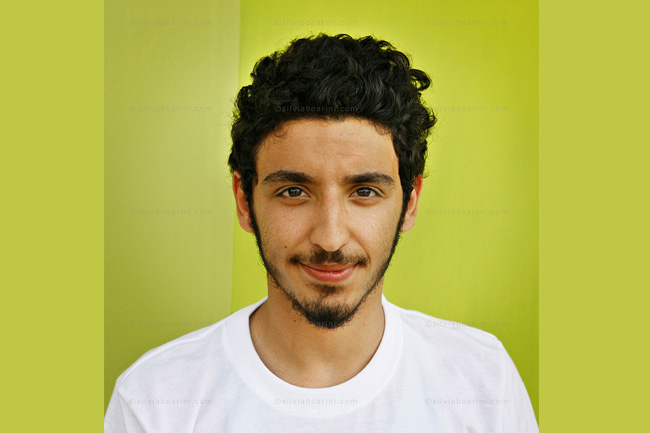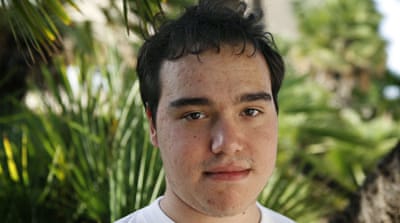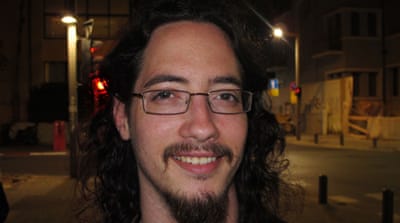This story came out in the run up to the Israeli parliamentary elections in March 2015. The Joint List was breathing new hope into Israeli politics. In Tel Aviv, I asked both its Jewish and Palestinians supporters what is special about it.
For the full story go to Al Jazeera English
On Tuesday Israeli citizens will elect the twentieth Knesset, casting their vote on ballot papers printed in the illegal West Bank settlement of Karnei Shomron.
While the Zionist Union and Likud are unsurprisingly leading the latest polls, it is the Joint List, third runner up and newcomer on the scene, that is lending hope to the Arab minority and the radical Jewish left.
The Joint List brings together the Jewish-Arab party Hadash, and the Arab parties: United Arab List, Ta’al and Balad.
It is expected to win between 13 to 15 seats in the 120-seat Knesset, making it a force to be reckoned with.
The Joint List is widely hailed as a historical moment for Arab unity and is cited as the reason behind the anticipated 10 percent increase in Palestinian-Israeli voter turnout.
Al Jazeera spoke to some Arab and Jewish citizens of Israel about their electoral choices.
Tareq Awwad, 21, Arraba, student,Tel Aviv university
I have been active on campus with Hadash and now I’m voting Joint List because it is the only list that goes against racism, fascism and the right wing.
It calls for equality between Arabs and Jews in Israel and it promotes women’s rights. It stands for peace and democracy.
This is the second time I vote. The political situation is unstable here and there is an election every two years instead of every four years.
Rezeq Salman, 22, Ibillin, student, Tel Aviv university
I’v been a Balad party supporter and I will vote for the Joint List because I believe that “Racism”, “Apartheid”, “class b citizens” are all terms that belong to the Medieval period.
The Joint List suggests that this country must be a country for all of its citizens, we want real equality for everyone. The other [electoral] lists want this country to be a Jewish country, and as a Palestinian, I must fight that racism, and demand full rights.
Yossef Lavor , 20, Tel Aviv, sociology student
I am going to vote for the Joint List because I want to add my voice against the occupation, racism and fascism.
It is the first time I vote. I think it is important to participate in parliamentary elections, but it is not the most important thing.
We have to play this game [of voting] but it is very important that we remain active politically as individuals, all of us.
Yara Abu Younis, 19, Sakhnin, social work student
I am a Palestinian in Israel and voting for the Joint List is the right decision because I want to live in peace and to be safe.
It is the first time I vote, I was already active with Hadash because in their ideals I find my ideals.
They fight for women’s rights and minority rights and for equality to all and these are very important issues for me.
Omri Evron, 27, Jaffa, Salesman
I am voting for the Joint List because I want my society to treat everyone equally regardless of race, nationality or gender.
The Joint List is the only party that has Jewish and Arabs working together as equals, for a society that is truly just, democratic, egalitarian and truly wants peace with all our neighbours.
I am a member of the Communist party of Israel (Hadash). I have been a socialist activist since I was a teenager, going to protests against the occupation, demonstrating for social justice and basic social rights.
Amos Brison, 27, Jerusalem, student
Until now I voted for Hadash but before the four parties joined there wasn’t really a sense of hope. The Joint List is really a list for the underprivileged. The head of the party, Ayman Odeh said, ‘the Ethiopian Jews and the Mizrahi Jews and the Russian, all the oppressed and underprivileged are probably not going to vote for us but we are still going to fight for them.’
And this sums it up for me, it gives me hope. Many people see us [the Jewish voters] as traitors and their members [of the Joint List] as terrorists and so on but it is undoubtedly the most democratic choice.
Only another party, the Orthodox Mizrahi Jewish party, speaks about fighting for the underprivileged and oppressed. But there is a difference, the Joint List mentions the most oppressed: the Palestinians.
Hanan al-Sanah, 35, Beersheva, Social activist
At first I had decided not to vote in this election. I didn’t want to be involved with Israeli politics. When the Prawer Plan passed the first reading I was disappointed with our leaders. I thought we shouldn’t vote because the Israeli parliament is not helping us.
Our representatives couldn’t stop the bill in the Knesset, eventually it was the community that did it.
But the Joint List gave me hope. Not just because the parties came to an agreement but because of the new faces, they are encouraging people to go out and vote.
The situation is becoming harder and harder in the Negev with home demolitions, lack of housing rights and people are looking for solutions. There will likely be competition within the List, we just hope they will compete to improve our situation.
Thabet Abu Rass, 60, Qalansawe, The Abraham Fund Initiatives.
I am a socialist and a Hadash voter. I was in favour of a joint agreement with Meretz but it didn’t work. Still there is added value to the Joint List in terms of Arab Unity.
The demand for civic equality is growing, a 10 percent increase in Arab voters turnout is expected and we can use political power to create change for ourselves and bridge socioeconomic gaps.
This is a historic moment, I want to be part of it and give Arab Unity a chance. I will judge based on delivery. In the long run, though, maybe the Joint List will not last.
Islamists and Communists don’t go together, it would be like Meretz joining Shas. No one would expect it and how should it work? And yet Arab unity is expected.
In reality, we need space for different ideologies to compete.








